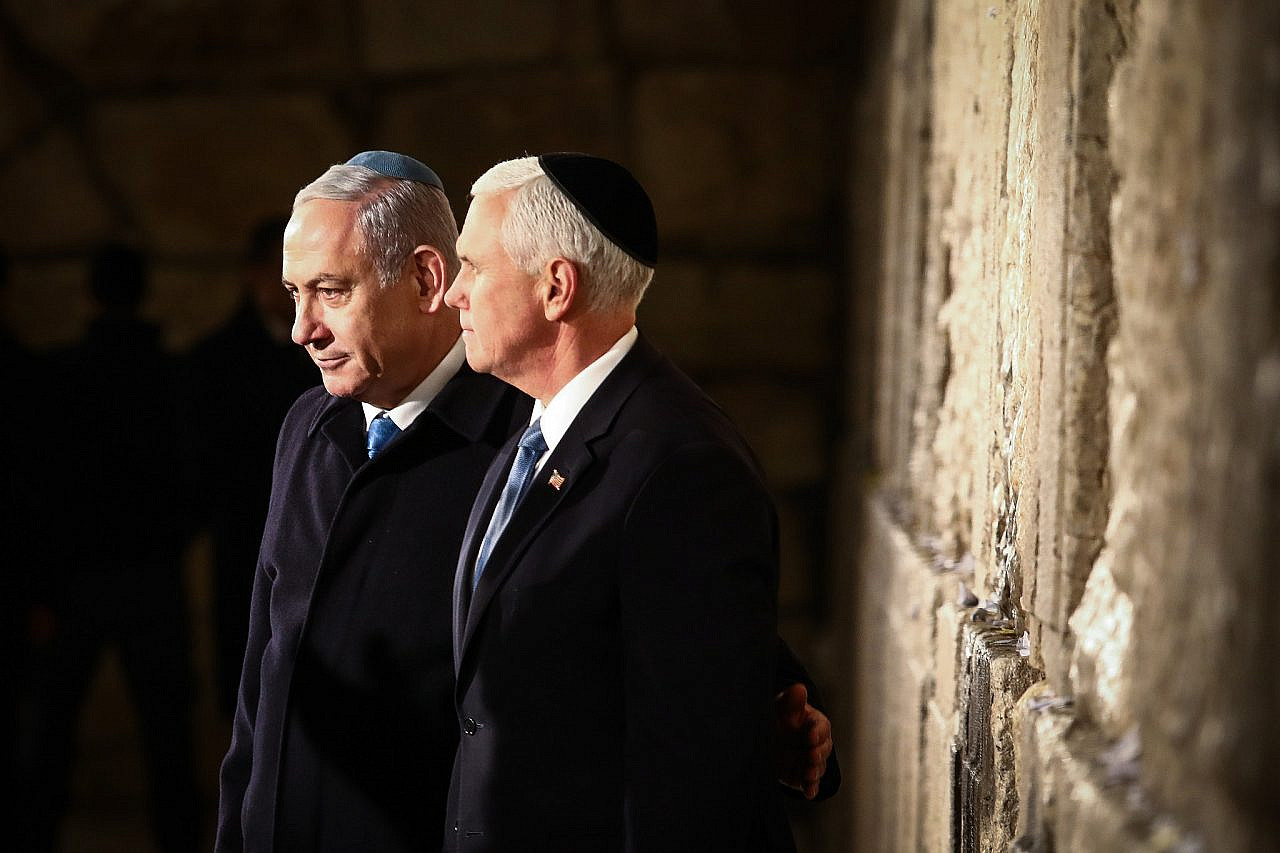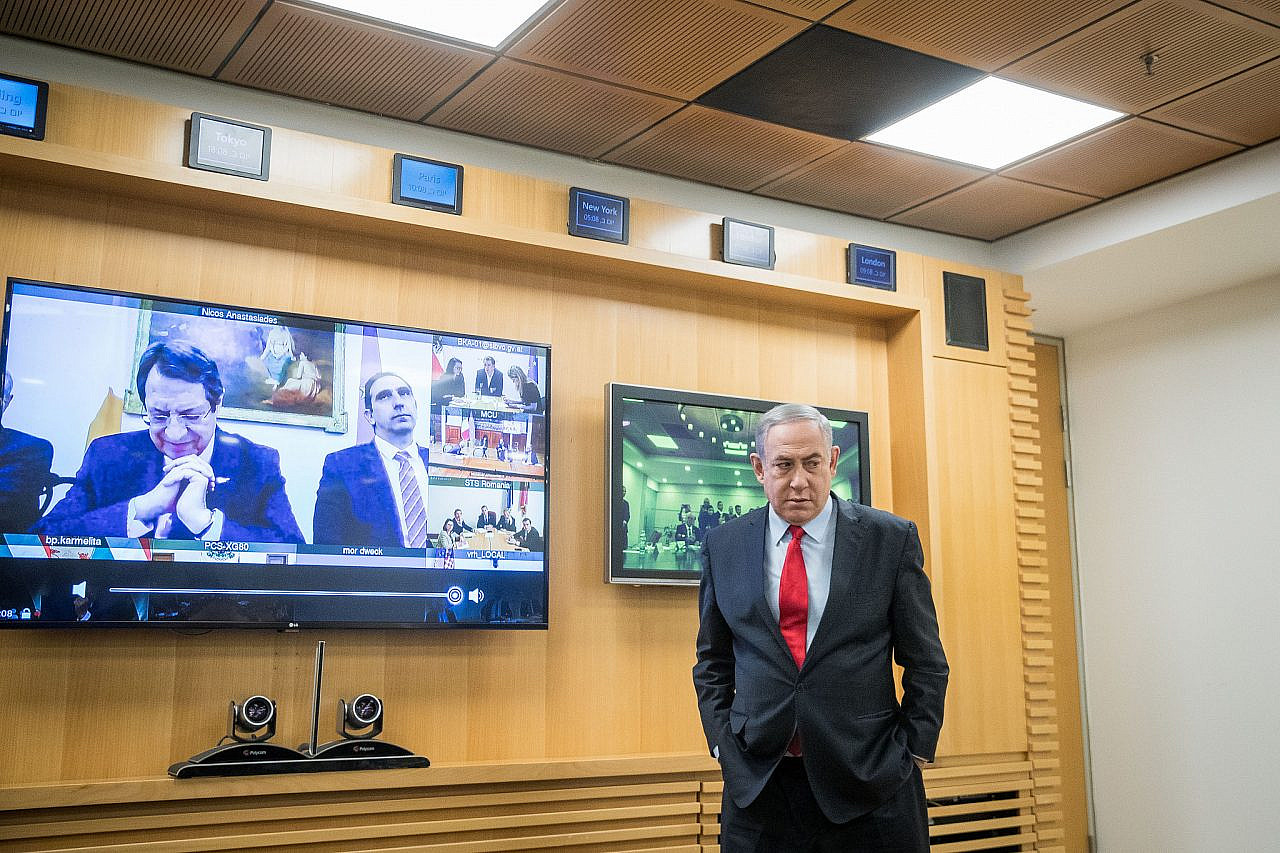On Monday evening, Israeli Prime Minister Benjamin Netanyahu announced that all arrivals from abroad must self-quarantine for a minimum of 14 days to try and halt the spread of coronavirus in the country.
The measure effectively shuts down Israel’s tourism industry, increasing the strain on its economy at an already perilous time. Two Israeli airlines, Israir and Arkia, have already cancelled all their international flights until at least the end of the month, save for Israir bringing customers home. Israel’s flagship carrier, El Al, held emergency discussions on taking similar steps before deciding to carry on with their schedule for the time being.
So far, there are 50 confirmed cases of coronavirus inside the Green Line, and 26 in the occupied West Bank (all but one in Bethlehem).
The Israeli government’s original plan was much less drastic: advisors from the Health Ministry had initially proposed adding the United States to its list of countries from which returning Israelis have to self-quarantine for at least two weeks, in particular those landing from New York, California, or Seattle, which to date are the three centers of the outbreak in the U.S.
But Netanyahu and other ministers balked and went against the recommendation. The reason, which many had speculated ahead of the decision, was confirmed on Monday by Israel’s Channel 13: Netanyahu was acceding to a request from the Trump administration to avoid making the U.S. president look bad during an election year.
U.S. Vice President Mike Pence — the science sceptic whom Trump has charged with overseeing the government’s response to coronavirus — personally asked Netanyahu on Sunday not to include the U.S. on its limited list of quarantine countries, but to set down a blanket policy instead. The prime minister complied. Tourism Minister Yaron Levin also reiterated that Israel would not take “unilateral steps” without “coordination” with Washington.

In a press conference Sunday night, Netanyahu delivered an unctuous appraisal of the White House’s response to the virus — which has been widely slammed at home and abroad — before announcing that no country would be “singled out” for self-quarantine requirements. The prime minister therefore effectively left two alternative options for Israel’s travel quarantine measures: impose no quarantine from the United States at all, thus ignoring his own Health Ministry’s advice, or enforce quarantine for everyone entering the country, no matter where they were traveling from, and whether they were returning Israelis or international visitors.
In other words, Netanyahu debated between putting his own citizens at risk of viral exposure, or torpedoing Israel’s tourist economy while global financial markets are in meltdown. And in the end, in order to stay onside with Trump, the prime minister went with the latter.
Since the new strand of the coronavirus, COVID-19, began spreading in January, the Israeli government has put some of the world’s most stringent containment practices in place. As the pool of countries experiencing a full-blown outbreak grows, we will likely see more states impose draconian curbs on movement to try slowing the disease’s inevitable spread.
But Israel’s decision — as Chemi Shalev pointed out in Haaretz — was made for the prime benefit of Trump, who is heading into a similar massive crisis completely unprepared and unequipped, eight months out from the 2020 elections.
On the one hand, this sequence of events is unsurprising. Netanyahu’s relationship with Trump, who has brought retrograde antisemitism roaring back into the American mainstream, is among his crowning foreign policy achievements, together with the pro-annexation gifts that the president has bestowed in return.
It is therefore no shock that Netanyahu would agree to scratch his back with an eye on the upcoming U.S. election, much as Trump did by releasing his so-called “Deal of the Century” just over a month ahead of Israel’s recent election.

Still, it is disturbing to watch the working logic of the Republican Party now informing the Israeli prime minister’s decisions during a public health crisis: keep Trump happy, even when doing so could cost your own citizens’ lives and/or throw your economy into disarray.
We are used to seeing Netanyahu team up with Trump in ways that heap further misery, death tolls, and abuses on Palestinians while risking Israelis’ security, including with the U.S. embassy move to Jerusalem and Trump’s purported “peace plan.” In those cases, though, the results secured huge political capital for the prime minister. With the coronavirus ban, it is hard to see who will be thanking Netanyahu — apart from his U.S. benefactor.
This decision, of course, is not the only coronavirus-related measure to be informed by politics over public health. As my colleague Henriette Chacar pointed out a few days ago, Israeli Defense Minister Naftali Bennett’s decision to place Bethlehem on lockdown, in response to an outbreak of the virus in the city, stood in stark contrast to the self-quarantine measures imposed on Israelis inside the Green Line. Such are the perks of a military dictatorship, including in a city which, as part of Area A, is ostensibly under full Palestinian Authority control.
The vast gap between such parallel measures are the established political calculus in Israel-Palestine. Israel’s entire state apparatus is engineered to ensure that what is necessary for Palestinians is not so for Jews, and vice-versa, even when they live in the same area.
However, with his blanket self-quarantine move, Netanyahu is now holding the entire population hostage, and the economy with it. Just as Trump turned coronavirus into a bipartisan issue, so has Netanyahu turned it into a political alliance issue — and ordinary people will pay the price for their gamesmanship.


